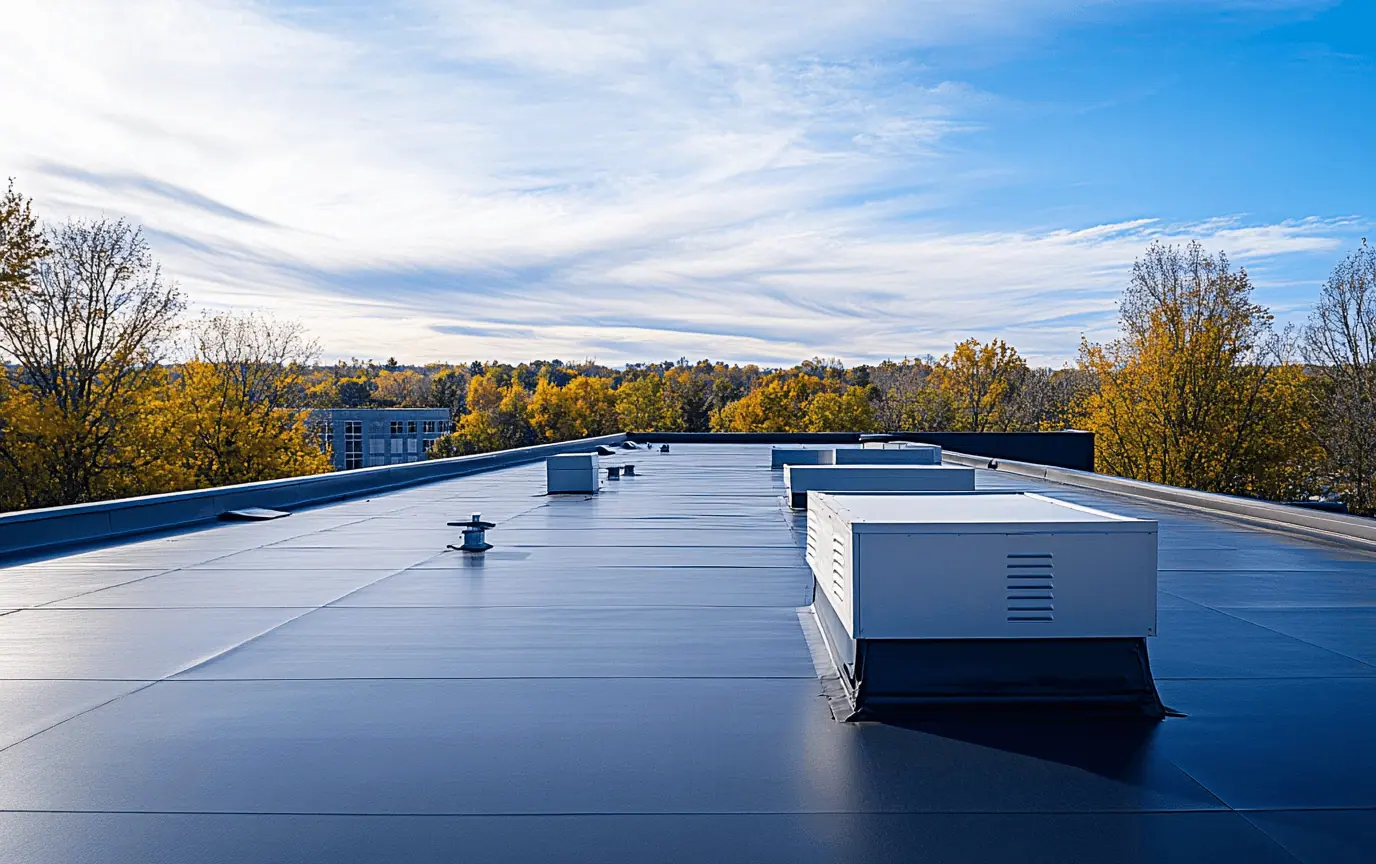Commercial roofing is a whole different ball game than residential roofing. Make sure you hire a company with a crew specializing in commercial roofing systems when completing a roof repair or replacement project for flat roofs (or low-slope roofs). After all, installing a modified bitumen roof on a hospital is much different than installing asphalt shingles on a cottage in Maryland.
Building owners and property managers: here’s the basic information you need to know about types of commercial roofs.
Common Types of Commercial Roofs
Is it time for updates to your commercial roofing system? Here’s an overview of roofing materials typically installed on commercial buildings.
TPO (Thermoplastic Olefin)
TPO roofing is a single-ply membrane roofing system. The seams are heat-welded to create a watertight surface. The membrane can be installed using several different methods. TPO Roofing is popular because it is cost-effective, energy-efficient, and durable – resisting UV rays, ozone, and chemicals.
EPDM roofing is another single-ply commercial roofing membrane. The EPDM roofing material (rubber roofing) is a relatively low-cost option.
Metal Roofing Systems
Your new commercial metal roof, made with corrugated galvanized steel, aluminum, or tin, will be highly durable and long-lasting. Metal roofing is a high-performance material that withstands extreme weather conditions while offering aesthetic appeal. Standing seam roofing is known for being particularly watertight as the fasteners are protected with this type of system.
Modified Bitumen
A modified bitumen roof consists of multiple layers of self-adhesive sheets, hot-mopped asphalt, and torch-applied or cold-applied adhesives. One of the most popular commercial roofing materials, modified bitumen roofing ensures high tensile strength and superior waterproofing capabilities, making it an ideal choice for flat roofs.
Other Options for Flat Roofs
Besides single-ply, metal, and layered commercial roof systems, you may also want to learn about materials that extend the life of your current roof or add insulative properties until a new full roof system can be installed.
For example, a foam insulation overlay can improve your commercial building’s energy efficiency. Solar shingles and panels can also harness sunlight to generate electricity, reducing energy costs. Vegetative roofing systems are also gaining in popularity.
Learn Which Roofing System Will Meet Your Unique Needs
Working with an experienced roofing contractor is essential when you need roof repairs or replacement on your commercial building. TopKey Construction can meet all your commercial flat roofing needs.
TopKey Construction offers commercial roofing systems in Maryland, Northern Virginia, and Washington, D.C. We are a GAF Certified Master Elite Roofing Contractor. We received this designation for our commitment to quality and the rigorous training our teams have received.
Contact TopKey Construction today to learn which commercial roofing material suits your building.
Key Takeaways About Flat Roofs in the DMV Area
- Single-ply roofing systems, such as TPO and EPDM, are cost-effective and can increase the energy efficiency of the existing roof on your building.
- Metal roofs are long-lasting and offer aesthetic appeal to commercial buildings.
- Modified bitumen roof systems are durable and can handle foot traffic.
- Contact a commercial roofing contractor in the DMV area to learn what system suits your budget and needs.


